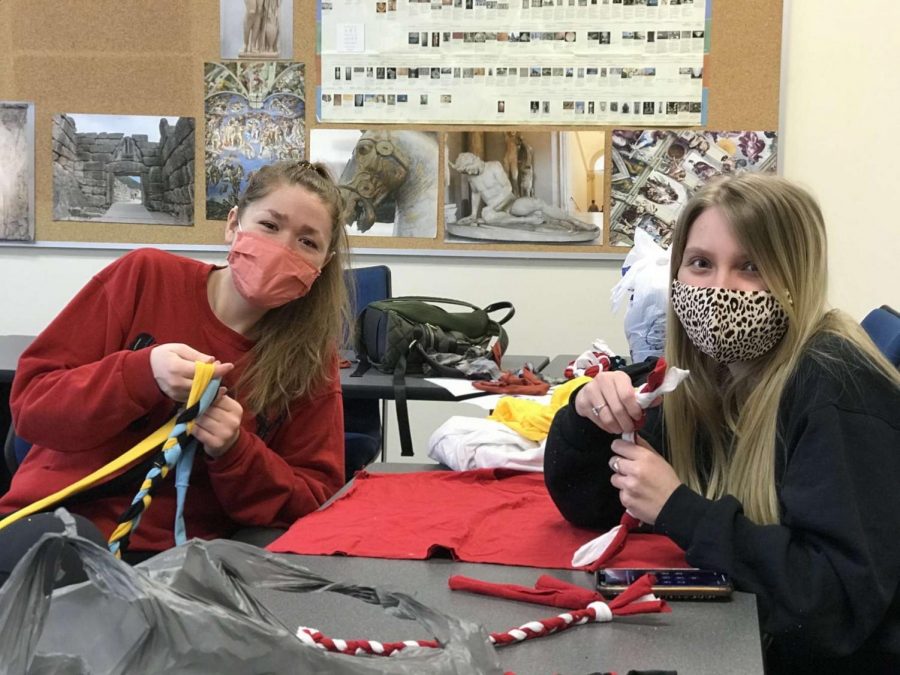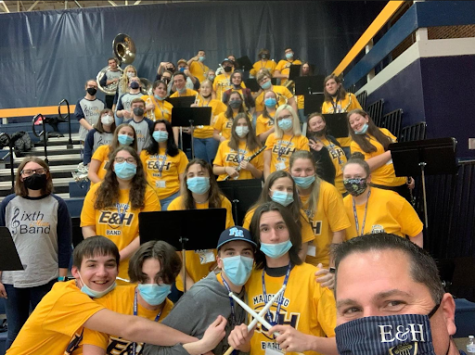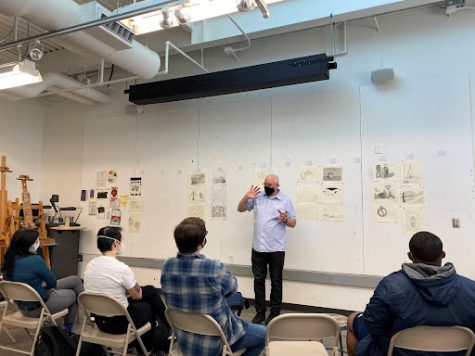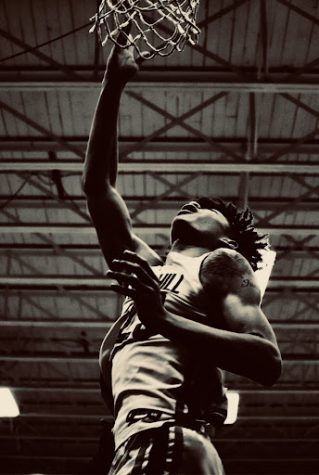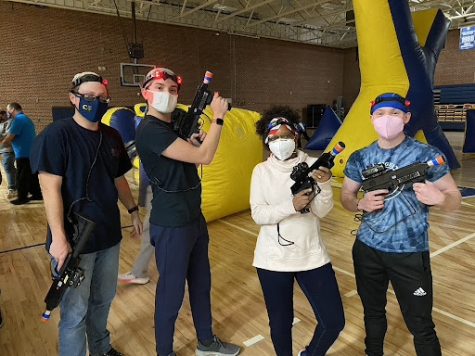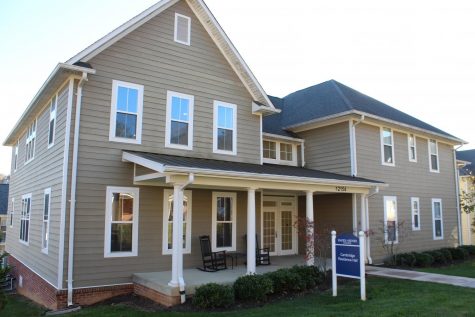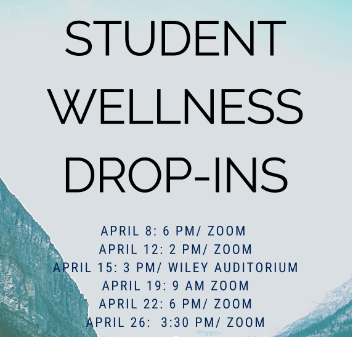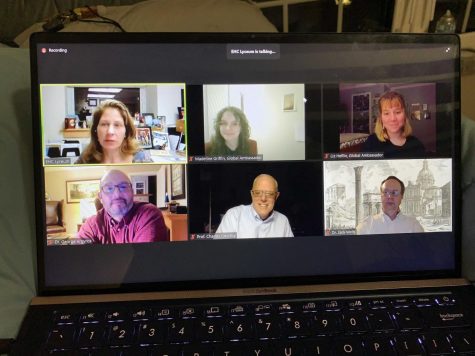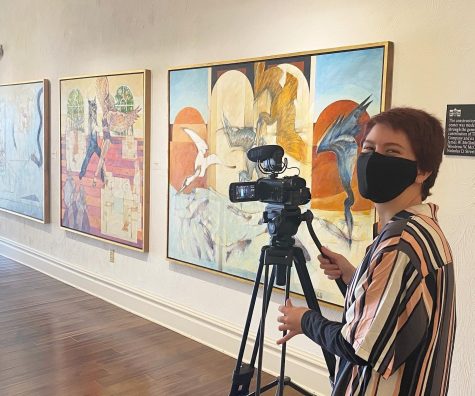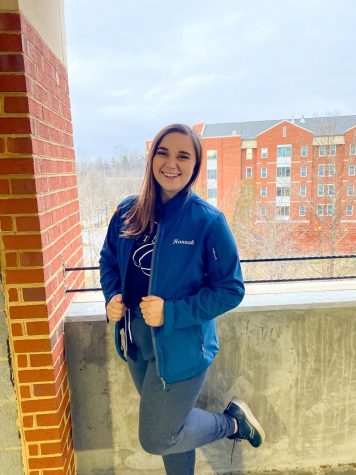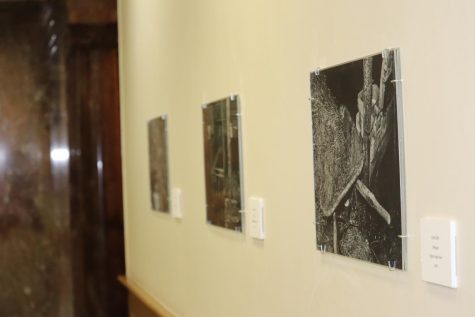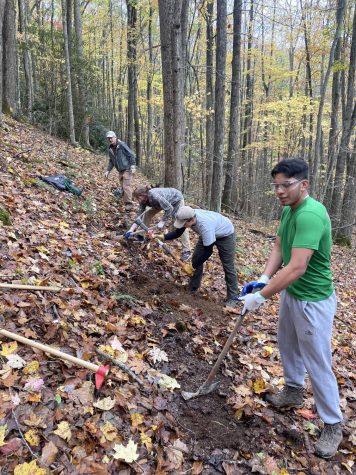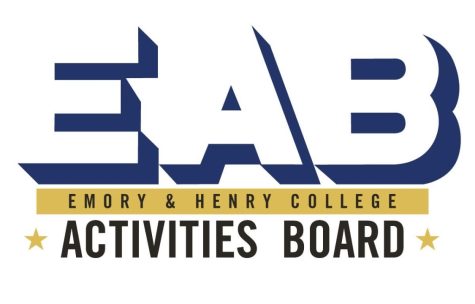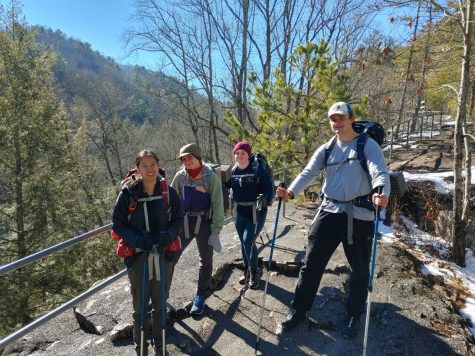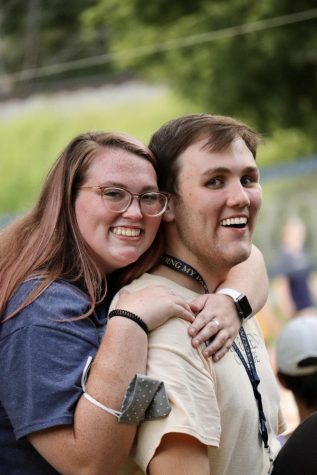Greek Life Turns to Virtual Community Service Amidst COVID-19
Alexa Shockley (left) and Emily Hollandsworth (right), sisters of local sorority Alpha Beta Chi, make dog toys out of old T-shirts at a school-approved, socially distanced service opportunity.
Guest Contributor, Lauren Boyda
As the pandemic continues, Greek organizations on the Emory & Henry campus find creative ways to engage in safe community service.
Sam Lopez, Housing and Residence life coordinator and head of Greek life, pointed out that Greek Life at Emory & Henry College is an entirely local system, however, virtual service has allowed them to reach organizations outside the immediate surrounding region. Lopez said that this process is notable because, “while they might be smaller in size, the traditions and opportunities provided by these groups [Greek Life] are amazing.”
A big part of community engagement for these organizations is volunteering. Lopez highlighted that the efforts implemented for virtual and socially distanced service are “to have student engagement with the community safely.”
With the administration’s help, Greek organizations actively work to achieve 10 hours of volunteer service per member. With many colleges offering only remote or hybrid instruction, students face uncertainty in losing influential aspects of their college experience, such as engagement with their peers and community. The administration and Greek community leaders have tackled this concern head-on by including options for safe or virtual service opinions like making dog toys out of t-shirts in person or donating money or shirts remotely.
Greek life leaders such as Mia Altizer, president of Alpha Beta Chi, have also aided in the process of enacting safe service options. Altizer said, “the sense of community that E&H local Greek life offers is vital as students try to find their place at this moment and safely connect.”
President of Beta Lambda Zeta and secretary of Greek Council, Blake Madaris, said that while he thinks the pandemic has negatively affected the Greek organizations, “the Greek community is known to adapt and will make the best of the situation.” He also highlighted that Beta Lambda Zeta’s primary goal moving forward is to continue making a positive impact on campus, “whether it be safe in person or over zoom.”
Altizer pointed out that, while the pandemic has isolated members away from one another and potential new members, Greek organizations are doing the best they can given the pandemic and restrictions put in place.
“Many organizations, as well as my own, have been able to meet via Zoom and plan events that can still be fun online,” Altizer said. Altizer’s sorority plans to make blankets for the Women’s Resource Center in small groups or individually.
Students seek a sense of belonging in a time of separation and uncertainty, and Lopez highlighted how happy she is to “see Greek Organizations embracing the experience and doing their best.”
The efforts made by student leaders, members, and administration are critical to the Greek organizations’ survival by giving it their all to prioritize community engagement.

